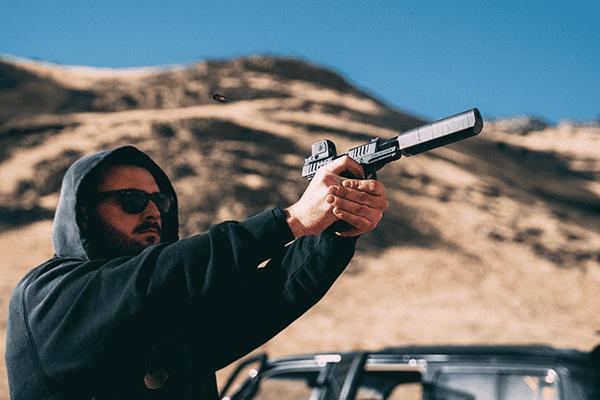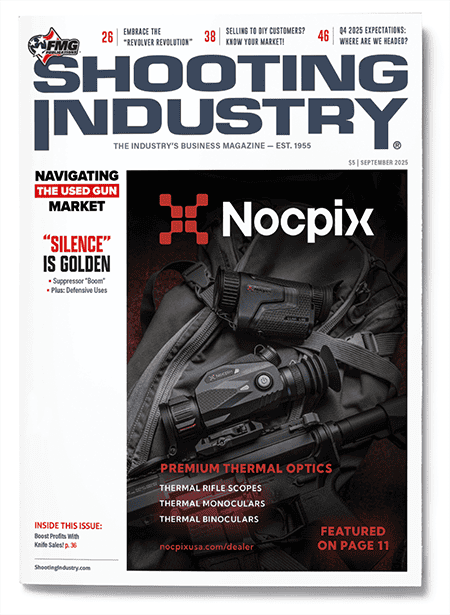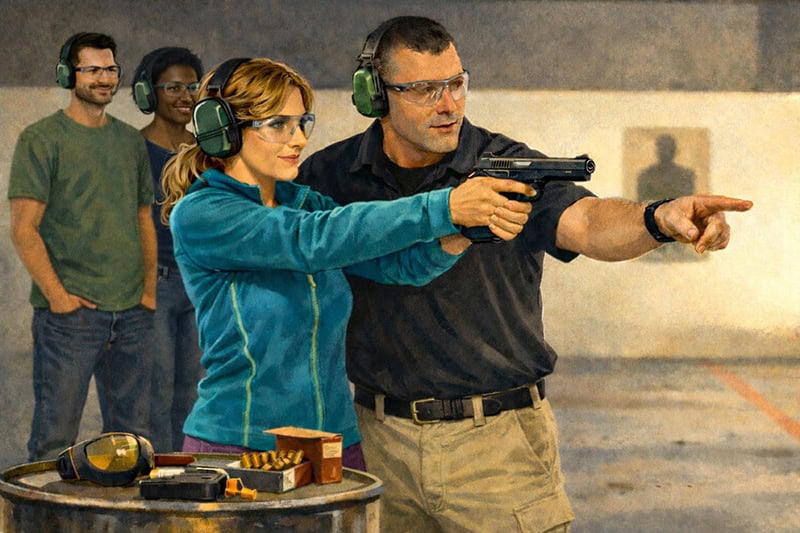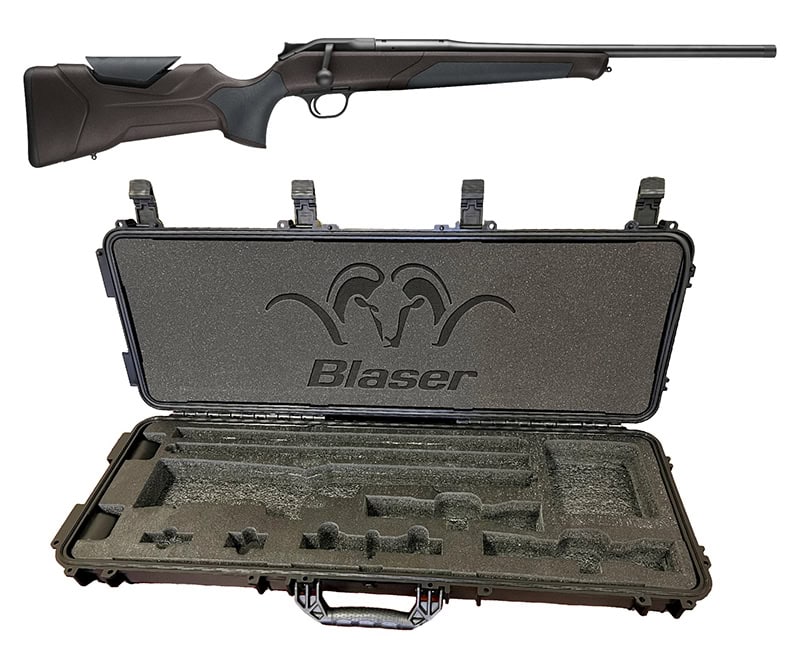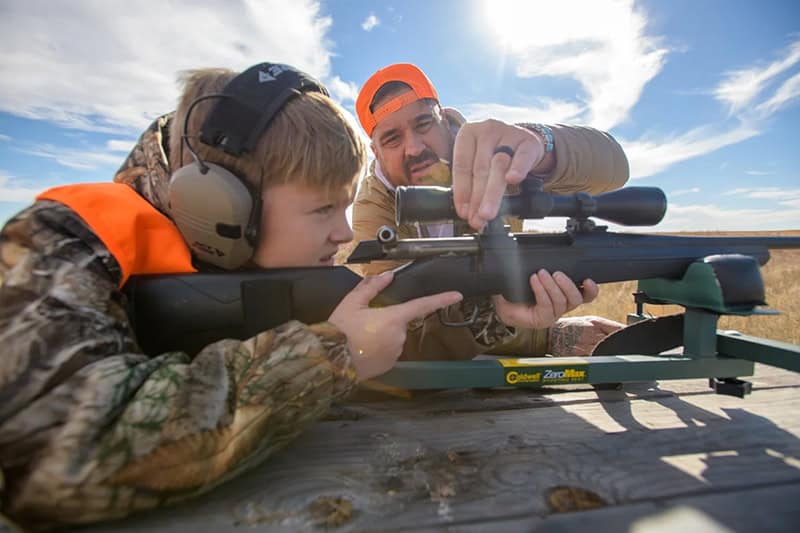Supressors For Defensive Puproses
Whether we call them “silencers” as their inventor did, “suppressors,” or even “mufflers” (as they’re known in the United Kingdom), devices that reduce the sound signature of firearms are more popular than ever. They’re generally touted for hunting and target practice, but the fact remains they can be useful for legitimate defensive purposes.
While typically too bulky to adapt to concealed carry handguns, the defensive-minded customer can see (or be informed of by you and your staff) several good reasons to have them on a home-defense handgun or long gun. However, they’ll also have questions as to whether their use of the same can have negative consequences in court.
In Dec. 2024, Luigi Mangione was arrested for the murder of a big pharma CEO on a Manhattan street. The fatal shooting was captured on a security camera. The assassin shot his targeted victim from behind … with a silenced pistol.
That shooting created some long-lasting headlines — and didn’t do any good for those of us in the Second Amendment movement who are pushing for laws to make suppressors easier to purchase by law-abiding private citizens. Mangione has pleaded not guilty to the murder charges he faces. In the coming months, his trial will dominate the headlines. We may be sure this will trigger a wave of media condemnation of what anti-gunners will certainly paint as a “tool of assassins for silent murders.”
Yet for all this, there are some excellent tactical reasons to have a suppressor on a home-defense firearm or a “ranch rifle” carried in a hunter’s or farmer’s pickup truck.
Let’s look at both sides of the issue: the tactical aspects (and very real safety aspects) of silencers, and how they might be defended in court.
Tactical Advantages
Let’s assume a burglar alarm or security camera has alerted your customer to the fact there is one or more presumably violent felons who’ve just invaded his or her home. The customer has every right to use lethal weapons to defend themselves and other innocent members of the household. Even if they’ve called 9-1-1 or trusted their alarm system to automatically alert the police, there is the matter of response time (which is often quoted as 11 minutes on average and may take considerably longer, especially in rural areas).
There is an excellent chance there will be gunfire. The defending homeowner needs all of his or her senses to determine where in the house the deadly intruder(s) may be as the dynamic situation unfolds. The blast of a powerful firearm reverberating inside an enclosed space, such as a hallway, can be literally deafening.
Many years ago, I was among several gun writers attending a SureFire presentation in which they introduced their then-new line of silencers. We were told why a company that specialized in tactical lights had decided to manufacture sound suppressors. Through their law enforcement customers, SureFire was made aware of many cases where police officers who’d had to fire powerful guns in close quarters had to go out on disability because of hearing loss related directly to the incident.
And even before we consider long-term hearing loss from such an incident, why stun a primary sensory acquisition at the worst possible moment in a life-or-death confrontation? Many and perhaps most of your customers won’t have considered this in their home-defense plans — it makes good, ethical sense to remind them!
This is particularly true for the increasing number of Americans who have replaced the traditional home-defense shotgun with the AR-15 rifle. The hard crack of a .223 Remington can cause the ears to ring even through ear protectors on the range — what will its effects be in an enclosed space with no hearing protection?
Similar thinking several years ago drove SIG SAUER to start selling its own line of suppressors, primarily for law-enforcement carbines. Ruger recently announced a partnership with a silencer manufacturer (Dead Air Silencers) as well.
Abating Fears Of Sound, Recoil
Remind your customers home-defense guns are pool weapons, which might be used in an emergency by various authorized members of the household, not all of whom will be seasoned shooters who’ve become inured to gunfire. What causes less experienced shooters to anticipate their shots, jerk their triggers and miss? Fear of that ear-splitting sound, and fear of recoil.
Suppressors reduce recoil, as well as soften the sound report. This is true with any firearm: A Joe Biden Signature Model double-barrel shotgun, as well as a 5.56mm AR-15. As Jeff Cooper famously said, “The purpose of shooting is to hit, and it’s all the more true when firing in a life-or-death defensive situation.”
An added benefit stemming from this is that the quieter sound and lighter recoil of a suppressed defense weapon encourages more practice among the members of the family who are less enthusiastic about range practice.
Finally, consider this: When looking down the barrel of a homeowner’s defense weapon, might a violent intruder be more intimidated into flight or surrender if something about the gun told them, “The person pointing that thing at me looks like a professional?” A silencer might just have exactly this bloodshed-preventing deterrent effect.
The Stigma
If you’ve been in the business a while, you’ve probably lost count of customers who had been around guns all their lives but were shocked to suddenly discover it’s legal in most states to own silencers, or indeed, even machine guns. Such is the legacy of the Firearms Act of 1934, which demonized those tools, along with short-barreled shotguns and rifles. Their fear that a jury of non-gun people would associate such things with gangsters, terrorists and assassins is justified.
The arguments above in favor of suppressors, if properly presented by defense counsel, should neutralize such prejudice. The defense would be able to show silencers are now widely used by hunters and recreational shooters, and cases such as Mangione’s are extremely rare. As an expert witness who also teaches the liability side of firearms, I’m often asked about silencer cases, and my answer is that it’s unexplored territory: I can’t find a case of an armed citizen using a suppressor in a self-defense situation.
In every case I’ve found of a legitimately owned Class III fully automatic weapon being used for self-defense, they have at a minimum been presented to the Grand Jury and have sometimes gone to trial. The latter have always resulted in acquittal, but with very substantial legal fees. The same results might arise with other NFA weapons.
The increasing prevalence of suppressors on hunting rifles, as seen on TV in outdoor sports shows and in general hunting/outdoorsman magazines would help defend against “assassination weapon” accusations, as will the increasing use of suppressors on police patrol rifles. I for one think suppressors will be defensible in court.
Of course, there is no need to worry about surviving criminal trials and lawsuits until after one has survived the home invasion. For the reasons cited above, I think our industry can make a compelling logical argument suppressors can indeed improve survival odds for the embattled law-abiding citizen.

